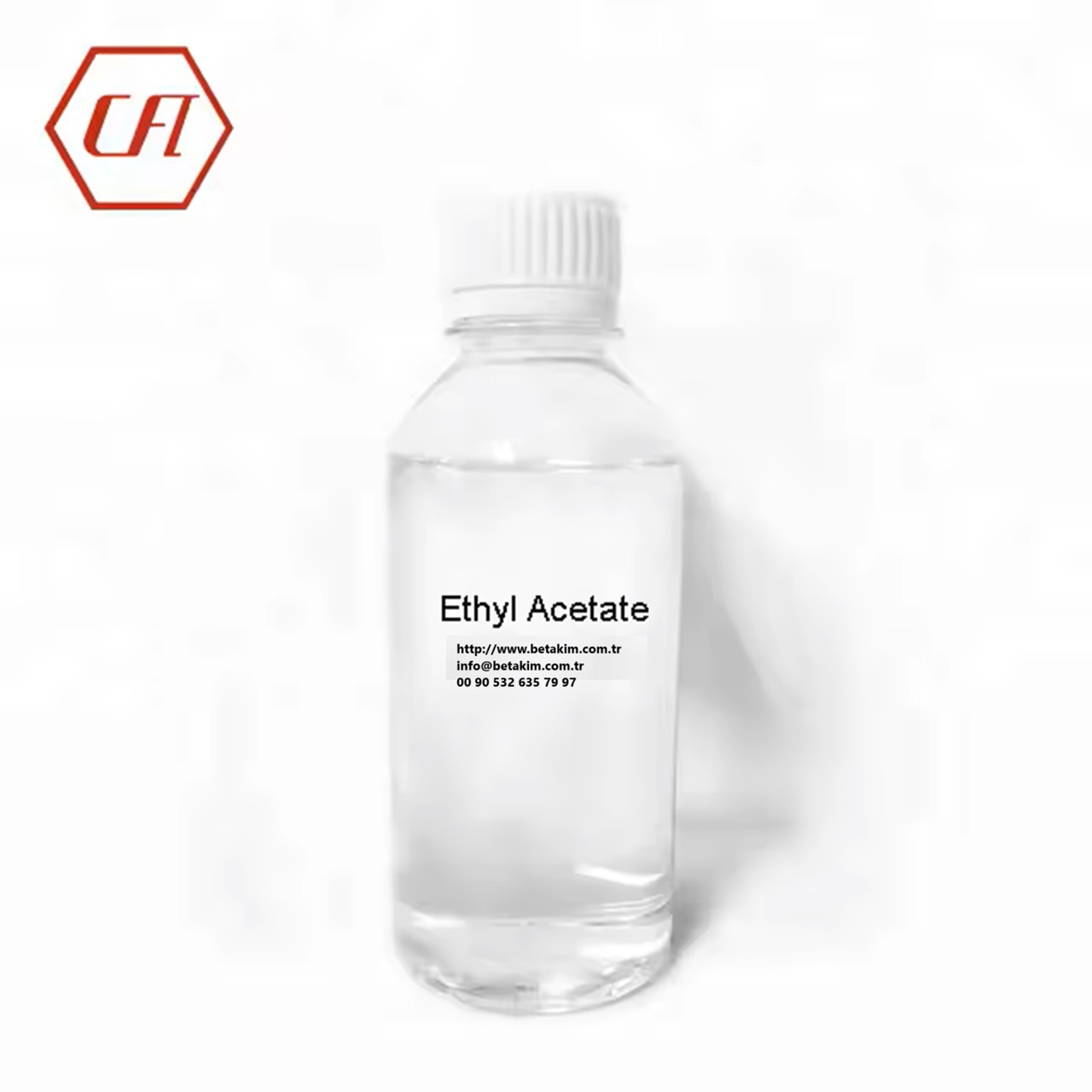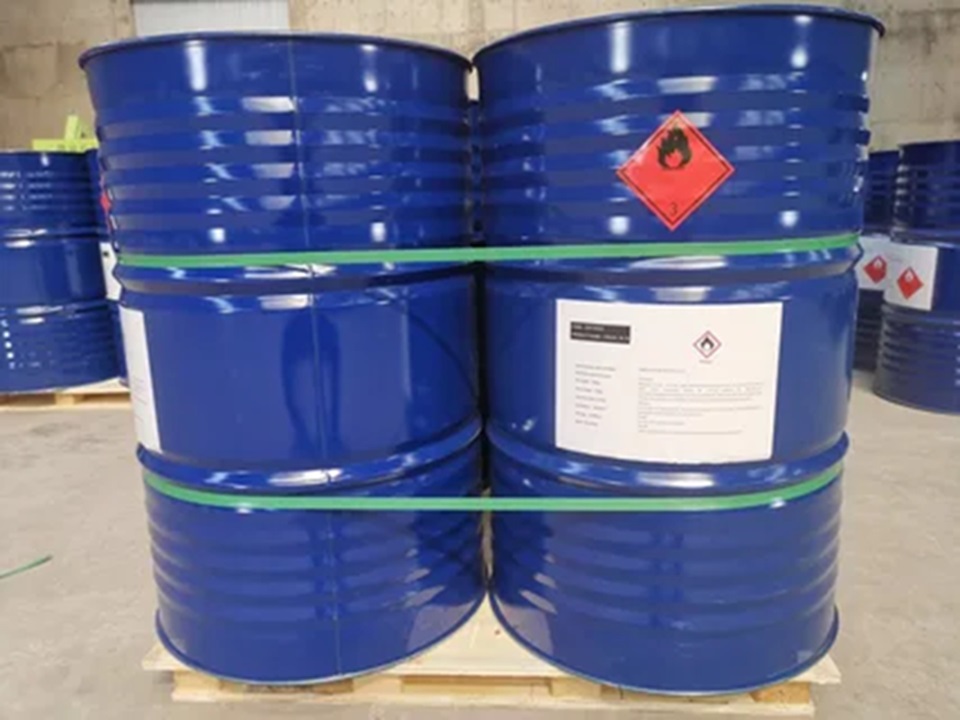We unleash your business potential by maximize the business innovation.
Send EmailEthyl Acetate, Acetic Ester, Acetic Ether, Ethyl Ethanoate, Reagent Alcohol, Methylated Spirit, Vinegar Naphtha, 141-78-6
Ethyl Acetate (CAS 141-78-6)
Identifiers
-
CAS Number: 141-78-6
-
Molecular Formula: C4H8O2
-
Molar Mass: 88.11 g/mol
-
EINECS: 205-500-4
-
InChI: InChI=1/C4H8O2/c1-3-6-4(2)5/h3H2,1-2H3
-
InChIKey: XEKOWRVHYACXOJ-UHFFFAOYSA-N
Synonyms: Ethyl acetate, Acetic ester, Acetic ether, Ethyl ethanoate, Spirit of wine, Reagent alcohol, Methylated spirit, Acetic acid ethyl ester, Vinegar naphtha, Ethyl acetate capillary grade, Ethyl acetate specially purified.
Physico-Chemical Properties
-
Density: 0.898–0.902 g/cm³
-
Melting Point: –83.5 °C
-
Boiling Point: 73.9–77.1 °C (at 760 mmHg)
-
Flash Point: 4–26 °C (highly flammable)
-
Refractive Index: 1.370–1.373
-
Water Solubility: 64–80 g/L (20–25 °C)
-
Vapor Pressure: 112 mmHg (25 °C)
-
Vapor Density: 3 (vs air)
-
Appearance: Colorless, transparent liquid with fruity odor
-
pKa: 16–18 (at 25 °C)
-
Stability: Stable under normal conditions; incompatible with strong oxidizers and some plastics. Vapors form explosive mixtures with air.
Preparation Method
Ethyl acetate is typically prepared by esterification:
-
Raw materials: Anhydrous ethanol + glacial acetic acid
-
Catalyst: Concentrated sulfuric acid
-
Process: Mixture is refluxed, cooled, then treated with saturated brine to precipitate crude ester.
-
Purity Standard: ≥99.5% (w/w) ethyl acetate content.
Industrial Raw Materials & Downstream Products
-
Upstream Raw Materials: Sulfuric acid, ethyl alcohol, 1-butanol
-
Downstream Products: Triacetin, acetic anhydride, cyanoacetamide, imidacloprid, gibberellic acid, pharmaceutical intermediates, dyes, and agrochemicals.
Applications
-
Solvent: Dissolves nitrocellulose, inks, greases, paints, dyes, plastics, artificial leather.
-
Pharmaceutical excipient: Used in drug formulations and extractions.
-
Analytical reagent: For bismuth, boron, gold, iron, molybdenum, platinum, potassium, thallium.
-
Chromatography: Standard solvent in TLC and GC analysis.
-
Drying agent: With anhydrous sodium sulfate or magnesium sulfate.
-
Other uses: Perfumes, artificial flavors, varnishes, adhesives, and cleaning agents.
Risk & Safety
-
Hazard Symbols: F (Flammable), Xi (Irritant)
-
Risk Codes:
-
R11: Highly flammable
-
R36: Irritating to eyes
-
R66: Repeated exposure may cause skin dryness/cracking
-
R67: Vapors may cause drowsiness/dizziness
-
-
Safety Precautions:
-
S16: Keep away from ignition sources
-
S26: In case of eye contact, rinse with water and seek medical advice
-
S33: Prevent static discharge
-
-
UN ID: 1173
-
Toxicity: Rat oral LD50 ≈ 11.3 mL/kg
-
Environmental Impact: Harmful to aquatic environments; vapors can cause anesthetic effects at high concentrations.
Analytical & Quality Control
-
Clarity & Color: Solution should be clear and colorless.
-
Acidity Test: ≤0.10 mL NaOH (0.1 mol/L) consumption.
-
Carbonization Test: No color development with sulfuric acid.
-
Non-volatile Residue: ≤0.6 mg per 20 g sample.
-
Moisture Content: ≤0.0832%.
-
GC Assay: Impurities ≤0.2% of main peak area.
-
Content Determination: Titration with NaOH/HCl, corrected with blank test.
Storage Conditions
-
Store in sealed containers in a cool, ventilated, dry warehouse.
-
Keep away from fire, heat, oxidizers, and moisture.
-
Recommended storage temperature: ≤30 °C.

